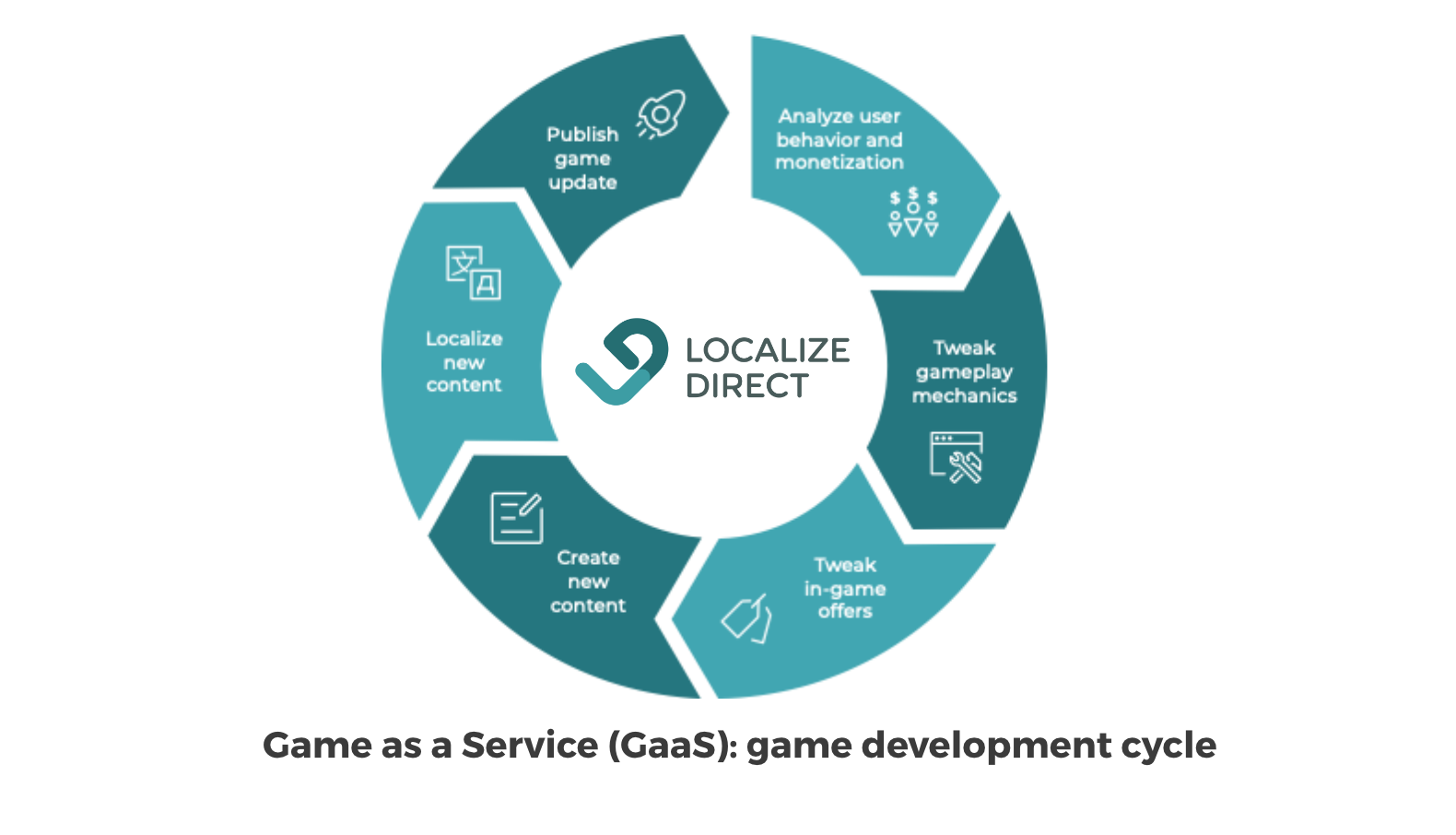Successful game localization is challenging. It requires talent, organization, cooperation and communication. With so many moving parts - things can soon become complex. A game localization CMS can take all the pain out of the process.

This blog is originally published on LocalizeDirect website.
![What Is A Game Localization System And What Can It Do For You? [Part 1] What Is A Game Localization System And What Can It Do For You? [Part 1]](https://d33wubrfki0l68.cloudfront.net/cf1e9b64f73a93a3619a3cf732aef81d5106264e/6e974/upload-data/game-localization-system-cms-tms.png?width=700&auto=webp&quality=80&disable=upscale)
What is Localization CMS?
A game localization CMS is an all-in-one localization system that handles every aspect of your game translation. It’s a collaborative platform that gives everyone concerned a real-time view of precisely where your localization efforts are.
Developers, translation teams, and testers can all use the localization CMS wherever they are based. It acts as a central repository for game assets from text strings to audio files to images. It’s a complete game localization system that allows text strings and queries to be shared, tracks changes, and controls access to source and translated text.
It makes life easier for everyone
Translators can dip in and add new strings, ask the developers questions, and access pertinent information.
Developers can add new text strings that need to be translated, hook up the platform to their build pipeline, and ensure they always have the very latest localizations.
Game testers can flag issues, test fixes, and provide feedback.
Management can generate status reports, create and assign tasks, and clearly see progress in real-time.
What is a Translation Management System?
A translation management system (TMS) can also act as a localization platform and covers some of the same bases as a CMS. A TMS helps you manage translations, assign tasks, and may offer translation memory and machine translation. Like any good game localization tool, it will also offer reports on progress.
You may be wondering what the difference between CMS and TMS is - a game localization CMS can go beyond simple translation to help developers with the organization of game assets and the management of game quality. A localization CMS offers a deeper tool set and greater transparency.

Games as a Service: game development cycle
What challenges can a game localization CMS solve?
To truly appreciate the benefits of a game localization CMS, you must consider the traditional game development life cycle and the most commonly used tools for localization. Usually, game localizations occur at the very end of development in rushed batches. The most used game localization tool is probably the humble spreadsheet.
The trouble with spreadsheets
What happens when you start sharing a spreadsheet and coordinating departments via email? Mistakes happen. People use the wrong version and miss the latest string translations. People overwrite completed work accidentally or ask questions that have already been answered. Tasks that could be automated have to be completed manually. An import and export procedure must be worked out. If files are delayed and don’t make the build in time, they must wait for the next one.
It’s also a slow procedure. The developers send a spreadsheet to the translators who come back with questions before they can complete the translation. The first version is then loaded into the game and testers look and flag any issues. The developers must fix the issues, which may require a new translation, and so it goes.
Rinse and repeat
This back and forth is even more of an issue in the age of DLC and game expansions. A game may continue to grow for years after release and expand with a steady stream of content that all must be localized. With the traditional model, you’re starting from scratch again every single time.
Why do game developers need a localization CMS?
With a game localization CMS you have a clear framework for the localization project and that offers many compelling advantages:
The platform sits in the cloud so it’s accessible from anywhere 24⁄7.
You can configure access for different groups based on what they need to do their job.
You can create custom templates and workflows that cover your needs from start to finish.
You can maintain a rigid folder structure and ensure rules are enforced.
In short, a localization CMS allows you to build a solid foundation. But that’s not all: It’s also free of the typical issues that arise from copying and pasting into countless different versions of spreadsheets that are sent back and forth.
Every action is recorded
If there is an error, you can track it down, see who was responsible and roll back if necessary. You can control what goes into each version of the game. You can track and filter strings and apply translations across the board. There’s no need to redo work that has already been done, and the CMS ensures you don’t miss anything that may need to be amended in an update or after a last-minute change.
You can start this process right from day one, there’s no need to wait until the end of development – this localization software is flexible and fully scalable.
Direct to game
With robust API integration you can even set your localization CMS to push strings directly into the game, enabling testers to tweak and fix things without having to disturb a programmer. You can also set simple limits based on character counts or pixel-based text limits, so overlong strings are flagged before they get into the game.
What once took a week of back and forth can potentially be achieved in a few minutes with a localization CMS.
Nothing is ever lost
Every string, every piece of information, every developer note, every translator question and clarification, and every change that has been made is there – nothing is lost. If you need to track down a specific piece of text, you can use a filter search with regular expressions – you can even layer multiple filters. All the valuable localization data you accumulate can be accessed and reused.
Game localizations done faster, cheaper, and better
A localization CMS enables you to localize your game much more quickly, reducing costs and helping you to eradicate mistakes in the process. Ultimately, it allows your talent to work closely together to craft high quality localizations that match your intentions, making your game the best possible experience for every player.
What functions should the best localization system have? Find an answer here >>> How To Choose The Right Localization CMS
Wondering what features should your perfect loc CMS have? >>> Check it in the 2nd part of the blog.
Read more about:
BlogsAbout the Author(s)
You May Also Like








